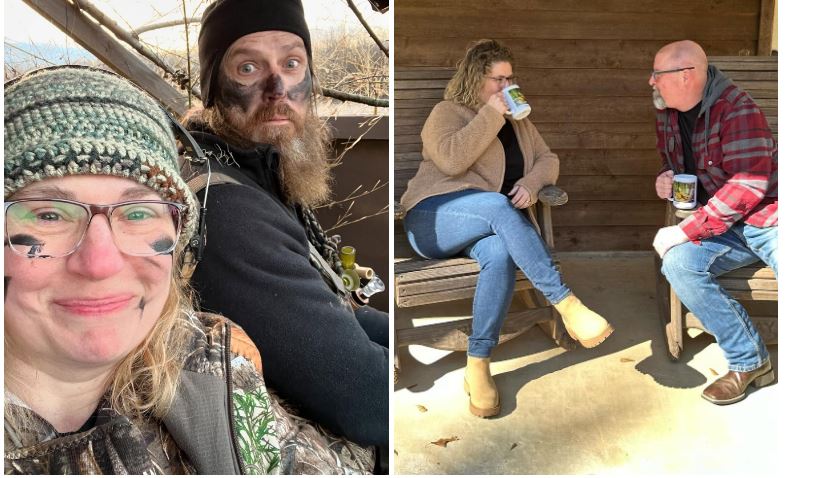
In May 2020, it was shocking to learn that Phil Robertson had found an adult daughter, but there was also a surprising element of grace to the revelation. Born in the 1970s after a brief affair, Phyllis Robertson Thomas was thrown into a family that was already well-known for its close ties and strong religious beliefs. It felt like a ripple changing a still pool when they were reunited.
Phyllis had been doubting who she was for decades before the DNA confirmation. She carried the anxiety of unresolved questions because her parents had never explained who her father was. She experienced shock, relief, and grief when Phil Robertson was finally named in the results. She later referred to that concoction as “beauty from ashes,” a term that acknowledged both suffering and newly discovered hope.
Simple Bio Table – Phyllis Robertson Thomas
| Detail | Information |
|---|---|
| Name | Phyllis Robertson Thomas |
| Birth Decade | 1970s (from a brief relationship) |
| Biological Father | Phil Robertson |
| Raised By | Her mother and non-biological father until DNA results in 2019 |
| Reunion Revealed | May 28, 2020 |
| Public Presence | Shares updates via I Am Second and Instagram @phyllisduckdaughter |
| Key Message | Story of forgiveness, faith, and family restoration |
| Phil’s Health Update | Diagnosed with Alzheimer’s in 2024 |
| Professional Focus | Advocate for reconciliation, faith and mental health awareness |
Her story played out like a testimony in recent years, first being shared on “I Am Second” and then being widely shared on Instagram. Her serene story was based on faith, forgiveness, and reconciliation and was not just about biology. These themes were present in both her personal life and the message she now conveys in public. She shared her story as a lighthouse for people on comparable journeys.
It was said that her first phone conversation with Phil was incredibly genuine. He said softly, “I had no idea,” four words that conveyed surprise and an implicit apology. Years of separation were broken by his admission, and Phyllis’s response was one of empathy. They both understood that this was a crucial moment, one that was neither entirely her fault nor entirely his.
Their story took on a new dimension when Phil was diagnosed with Alzheimer’s by the middle of 2024. She writes that they now value their time together even more. She talks about their quiet visits, their joint prayers, and their memory revisits. She learns a valuable lesson from these conversations: forgiveness endures even when memory deteriorates.
Phyllis has been warmly welcomed by the larger Robertson family. Miss Kay showed her maternal warmth, and sons like Willie and Jase included her in family news. These actions demonstrate how compassion and bravery can strengthen a family. They welcomed her as a member of their family, not as an outsider.
When Phyllis’s story is told, it usually turns into a scandal involving secret children. This one, however, developed in a different way—through openness, faith, and humble public storytelling. She showed the way to acceptance rather than demonizing anyone. She presents her story as a healing experience rather than a contentious issue.
Phyllis inspires others going through similar revelations—those who might feel abandoned, perplexed, or ashamed—by sharing her experience. Her message is straightforward: forgiveness liberates the heart but does not take away suffering. “Real freedom comes when we stop keeping score,” she wrote on her blog. That message seems especially important and obvious.
Her family has not been the only ones affected by her public persona. Discussions about reconciliation, forgiveness, and family secrets have surfaced. Her story resonates in counseling centers and faith groups. People view her as a reminder that sometimes the most unexpected sources of healing can be found, rather than as a headline.
Phyllis is essential as Phil’s memory deteriorates—not to take the place of his family, but to enhance it. She pays tribute to his legacy while providing new insights. She shares pictures of them together on Instagram, capturing moments of love and light. For many, even a fleeting smile between a father and daughter can represent hope.
In the end, their story raises questions about how families change—a kinship that was originally based on shared bloodlines can expand to include people from different chapters. It serves as a reminder that ancestry encompasses more than just DNA; it also involves empathy and respect for one another. Phyllis changed the definition of family when she entered that story.
In the future, her experience offers a template for handling difficult disclosures with grace and empathy. She opted for recognition rather than shame or silence. She made the decision to forgive rather than hold grudges. She opted for community over solitude. Now that many people are dealing with broken families and unspoken realities, that path seems especially promising.
There has always been a strong undercurrent of faith throughout Phil Robertson’s lengthy life, whether it be through his duck calls, hunting legacy, or TV fame. Now, that current is more profound. The tale of his daughter gives that current a new path, one that leads through healing waters and toward something more powerful.
